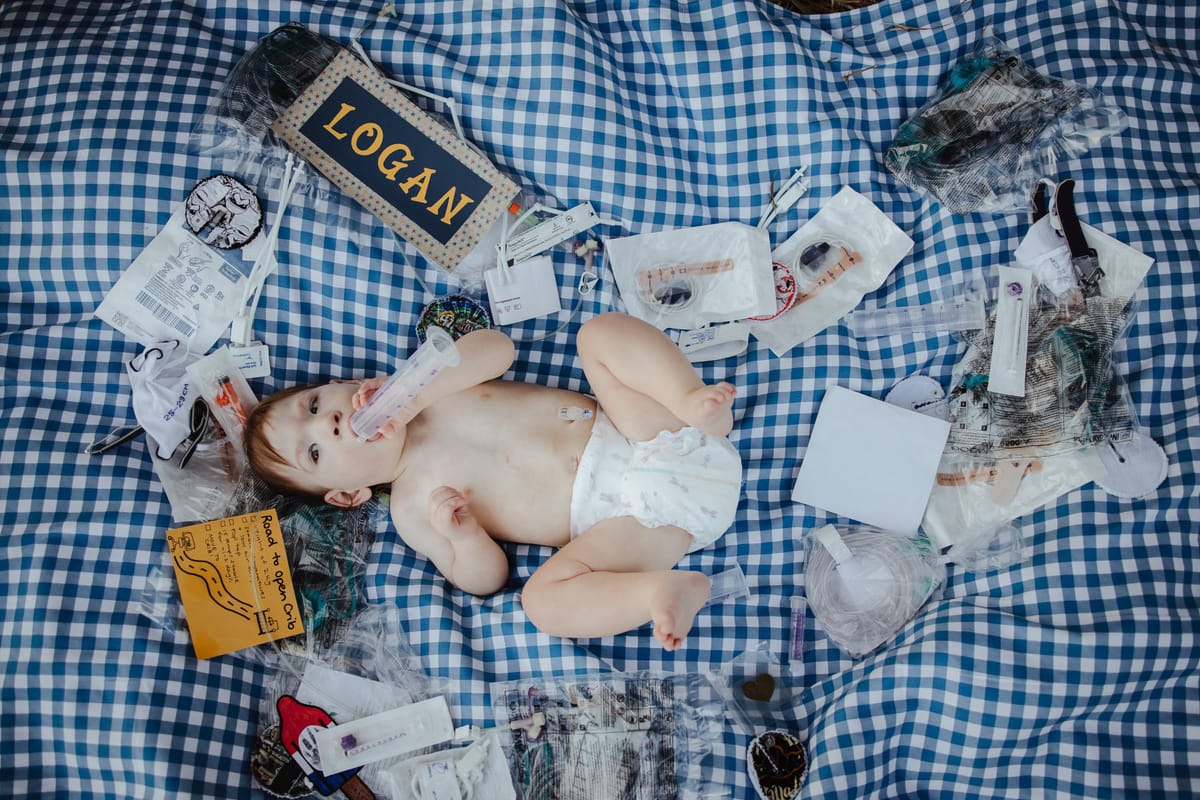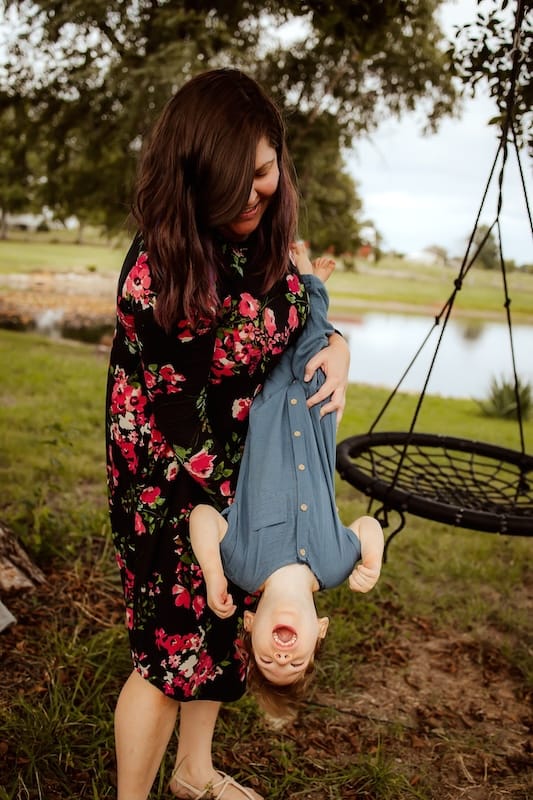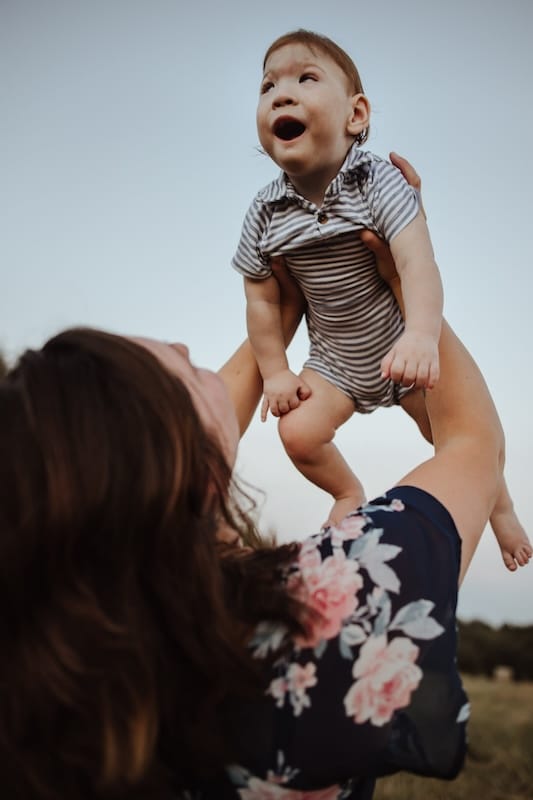Logan's Story: Weird in the Best Ways
Mel Sabin's son was born with a rare genetic disorder, Cri du Chat syndrome. This happy little man with great taste in music is the best kid a single mom could ask for.

by Mel Sabin
My name is Mel Sabin. I live in Kansas and I’m one of the leaders of our state chapter of Little Lobbyists. I’m also a single mom, and I’ve been advocating for medically complex kids since my son Logan was born in 2020. Some days it feels like it’s just the two of us against the world — but honestly, he’s the best teammate I could ask for.
Logan is the happiest little man with impeccable taste in music—think 1950s and 1960s classics, with a little blues thrown in. His all-time favorite is “In My Life” by The Beatles. He’s got sass for days and very strong opinions — nonverbal, yes, but he makes sure you know exactly what he thinks. He’s a total water baby: aqua therapy, faucets, splash zones — if there’s water, he’s in. His other favorite thing? Doggy kisses. We don’t have a pup at home right now, but he gets plenty of love from the dogs in our apartment complex. A service dog may be in his future.
My pregnancy with him was awful — constant pain and discomfort. At 26 weeks my water broke too early due to preterm premature rupture of membranes (PPROM), and I spent three weeks in the hospital trying to keep him safe. After an emergency c-section, Logan spent 125 days in the NICU.
The first time I “met” him, I remember his tiny, cat-like mewling cry. Genetic testing revealed he has Five p minus (5p-) syndrome, or Cri du Chat Syndrome — a rare chromosomal deletion seen in fewer than 100 births in the U.S. each year. That high-pitched cry is a common characteristic of the syndrome.
The way doctors and counselors talked to me in those early days was crushing. They listed off every worst-case scenario: he’d never walk, never communicate, his delays would be severe. What I didn’t know at the time was that much of that information was outdated and didn’t reflect the full spectrum of this condition. Finding the 5p- Society, the national group supporting families like ours, was pivotal. I finally saw what was possible: kids laughing, walking, thriving, living their lives. I wish my first introduction to his diagnosis had been that — real families, real joy — not a chromosome chart paired with doom and gloom.

What I want people to understand is that Logan is not a statistic. He’s not just a child with 5p- syndrome. He’s Logan. Every child with this condition needs different interventions. In Logan’s case, he was on oxygen as a baby, he uses a feeding tube for nutrition, and he’s been in physical, occupational, and feeding therapy since the NICU. Today he goes to the Britain Development Center, which is incredible because it combines medically led therapies with preschool. It’s holistic, it’s supportive, and it’s given him so much.
When you’re raising a medically complex child, people sometimes assume you’re grieving — like you’re living in the shadow of “the life you thought you’d have.” I’ve actually had people tell me it’s okay to grieve because “that life is dead.” That’s just not the reality for me. I don’t mourn or grieve the loss of any ideas I once had for Logan’s life. Once I had the information, I could hit the ground running to help him reach his potential. And while it’s been a challenge and sometimes a fight, it’s also an honor and a gift to be his mother. Logan is hilarious, weird in the best ways, and I love him more than I ever thought possible. I wouldn’t trade him or our life together for anything.
And here’s the truth: Medicaid saved his life — and mine, too. When Logan was born, I had great private insurance. It didn’t matter. By the time he left the NICU, he had a $1.2 million bill. Even after insurance, I was still looking at thousands of dollars in costs. I was drowning just reading those explanation-of-benefits forms. No doctor or social worker ever told me about Medicaid. I only found out by chance — through a paperwork mix-up with the nursing agency that was supposed to do Logan’s two-week post-discharge checkup. They casually mentioned he’d qualify for KanCare, Kansas’ Medicaid, through a waiver program. Within weeks he was approved, and when I asked (hesitantly) if coverage could be backdated, they said yes. That changed everything. I went from panicking over bills to focusing on my kid’s care.
There’s a lot of shame around Medicaid, like it’s something to hide. People don’t talk about it, which means families who qualify don’t always realize it’s an option. I’m loud and proud about it. Medicaid is lifesaving. Whether you’re on the program now or Medicaid once gave you the financial security and independence to transition to private or employer insurance, it’s lifesaving for children and families. For me, it not only enabled me to return to work and get active volunteering in my community — it’s also supported my mental health, because I can focus on caring for Logan instead of drowning in medical bills. Medicaid helps Logan be part of his community, gain independence, and grow in ways that will hopefully lessen his overall burden on the system as he gets older. It allows our family to contribute positively to society rather than being held back by fear and financial stress.

That’s why it terrifies me to see lawmakers act like cutting Medicaid won’t touch kids like mine. It already is. We lost a pediatrician a couple of years ago who stopped taking Medicaid because of low reimbursement rates. A hospital near us just closed its labor and delivery ward because of looming cuts. Waiver programs are being squeezed, making them harder to qualify for and harder to stay on. Providers are being forced to cut back. And this is happening before the full brunt of proposed GOP budget cuts. If this continues, kids like Logan won’t just lose coverage — the actual services they need will vanish because there won’t be providers left to offer them.
Medicaid gave our family so much. Our fight now is to make sure the families who come after us can focus on the most important work — giving their children the best lives possible, without the fear of societal shame or political winds taking it away from them.
